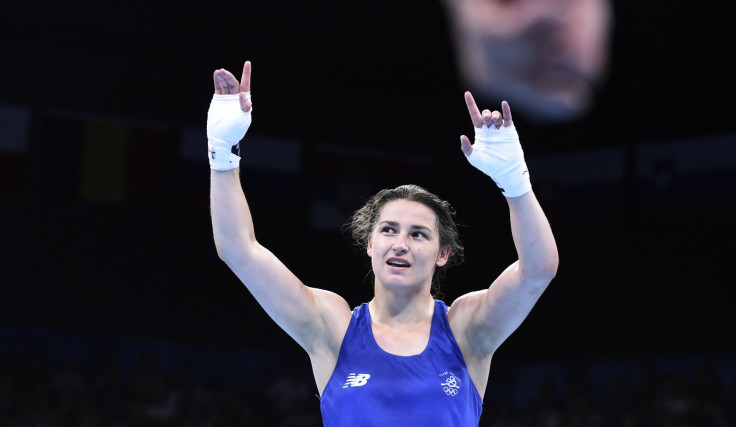Boxing heroine Katie Taylor ready to turn Rio green with Irish envy
The Olympic champion from London has nation's hopes once again resting on her shoulders
The national census in 2011 estimated there are over 2.2m descents of Ireland living in London. It is very likely that on 9 August 2012, every single one of them was present as the Excel Arena exploded with noise after boxer Katie Taylor won just the ninth gold medal in the country's Olympic history, and first for 16 years.
The Bray-born lightweight was already a four-time world champion when women's boxing took its bow in the Olympic movement and was among the most successful individual athletes in Ireland's sporting history. Alongside Great Britain's Nicola Adams and United States' Claressa Shields, she created history in becoming the first female Olympic boxing champion. Becoming the first to defend her crown would cement her legacy.
Despite winning European and World Championship gold since her heroics four years ago, it has not been all plain sailing for Taylor. In May, after securing her place in Rio after progressing beyond the quarter-finals at the World Amateur Boxing Championships, she lost her first bout at that level for 11 years to France's Estelle Mossely – who will inevitably provide a threat this summer.
Taylor began the bout on the front foot, but with the mystery scoring of the judges masking her progress she stopped dominating the centre of the ring and allowed Mossely to dictate. By the end she was tiring and it was little surprise when the decision went against her.

The defeat will either act as extra motivation for the 30-year-old who was denied a sixth world title in Astana, or give her closest rivals belief she can be beaten on the world stage. And without the same weight of backing behind her in Rio she is as exposed as ever to a potential shock.
Another one bites the dust. I wonder what excuse the golfers would of made if there was no virus. https://t.co/z5GUgQVEc2
— Katie Taylor (@KatieTaylor) June 28, 2016
Taylor will very much be the leader of the Irish team this summer but has not shirked away from criticising those who have opted against the trip to Rio. Among them include golfers Shane Lowry and Rory McIlroy – who had opted to represent Ireland – after the pair joined their colleagues in withdrawing from the sport's return to the Olympics.
"Another one bites the dust," she wrote on Twitter. "I wonder what excuse the golfers would have made if there was no virus. It's crazy that wrestling (one of the core sports) was thrown out for golf. Devastating for them. Ridiculous." They both may have been scrubbed off the Christmas card list.
In theory, Taylor should be adopted by the Brazilian public during the women's event, even if her Irish counterparts are unable to travel to South America. As a former footballer with the Republic of Ireland national team, her narrative is likely to capture the imagination and at least means she scores with the audience even if she can't win gold for a second time.
Without the same scrutiny as London, when she was consumed by expectation, Taylor can arrive in Rio relaxed and without the same sort of pressure. With time catching up with her, and not least her opponents, can she rouse herself one last time?
© Copyright IBTimes 2025. All rights reserved.






















